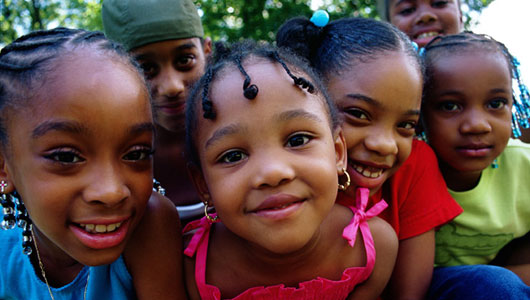It is every parent’s desire to teach their children to become independent thinkers and not follow the crowd. We all know that that is easier said than done. But, there’s help! Here are five ways to teach kids to think for themselves.

Take a Step Back from the Beginning
“Teaching children to be independent begins in early childhood, and will look different and be guided differently based on a child’s age,” said Stephanie Irby Coard, Ph.D. in an interview with Parents.com.
Taking a step back from the beginning is hard. Yet, if parents do this, children will learn to solve problems on their own, even babies. Instead of jumping all in, try verbally guiding them. Allowing children to figure it out on their own may be frustrating, but as they grow, problem solving skills will be well defined!
Set an Example
“Model responsible decisions, and be transparent with your own reasoning and thought process in making decisions,” suggested Dr. Coard.
We know that children, more times than not, follow the examples of their parents. If children observe how you handle a myriad of situations, then they follow suit. However, the key to successfully setting an example is transparency. Be open, honest, and be willing to listen.

Listen Before Speaking
“Teaching kids to think for themselves means parents must gradually loosen the reins so children can gain valuable confidence and experience making self-guided decisions,” said Dr. Coard. “Support your child’s need to build some sense of autonomy by giving advice only after you hear what they have to say and what their sense of direction is.”
In that same vein, child development and parenting expert, Claire Lerner added, “Your job is not to solve all of your child’s problems. It’s to give them the confidence and skillset to solve their own problems.”
Listening before speaking is key to nurturing the growth of a healthy independent thinker.
The Challenge is On!
Whether it is giving your little one extra time to pull themselves up from sitting to standing, or whether it is asking an older child, “why do you think that?” The challenge is on! Challenging your child provides valuable lessons, giving them the opportunity to exercise and discover their own thought processes.
Create hypotheticals and potential scenarios and see how they do. This creates the perfect opportunity to help them work through their processes.

Mistakes Are OK
“Discuss and normalize the fact that people make mistakes and that learning from them is what is most important,” said Dr. Coard.
Let your children know that you have made mistakes and that no one is perfect. Let them know that it takes courage and honor to admit to mistakes. Encourage them to learn from mistakes and know that some things don’t always work how we want them to.
Every parent wants to help clean up their children’s mistakes, but instead of trying to correct them, talk with kids about what went wrong.
“Listening to their perspective is very powerful,” says Lerner. “If you don’t rush in to help, you’re actually saying to them that you have total faith that they can solve a problem on their own, and that you’re here to help if they need it.”







